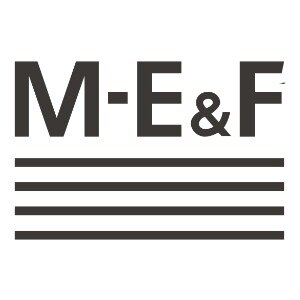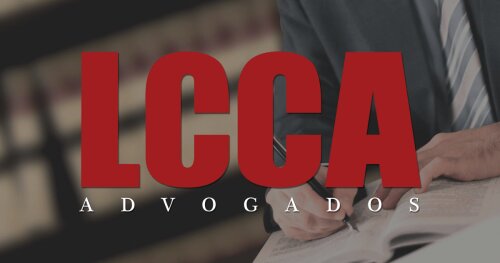Best Sanctions & Export Controls Lawyers in Portugal
Share your needs with us, get contacted by law firms.
Free. Takes 2 min.
Or refine your search by selecting a city:
List of the best lawyers in Portugal
About Sanctions & Export Controls Law in Portugal
Sanctions and export controls form an essential part of Portugal's legal framework for international trade and national security. These laws regulate the transfer, export, re-export, and transit of goods, technology, and services to foreign countries and entities. Their purpose is to prevent the proliferation of weapons, protect national security interests, ensure compliance with international obligations, and align Portugal with European Union (EU) and United Nations (UN) sanctions regimes. As an EU member, Portugal implements both national and EU-wide regulations, often acting to enforce embargoes, restrictions, and licensing requirements to safeguard against unlawful or risky export and import activities.
Why You May Need a Lawyer
Legal guidance is crucial when dealing with sanctions and export controls in Portugal. Businesses and individuals may find themselves in situations where professional legal support is necessary, such as:
- Navigating complex EU and Portuguese regulations on controlled goods and dual-use technologies.
- Applying for licenses to export restricted products or services.
- Responding to government investigations or audits regarding potential violations.
- Assessing risk of sanctions or embargoes when dealing with partners or markets subject to restrictions.
- Developing internal compliance programs to avoid accidental breaches.
- Contesting fines, penalties, or criminal charges linked to unintentional violations.
- Seeking guidance on new or evolving international sanctions situations (such as those related to Russia, Iran, or North Korea).
Legal professionals help you understand your obligations, minimize liability, and enable smooth business operations.
Local Laws Overview
Portugal’s approach to sanctions and export controls is shaped by a combination of national, EU, and international law. The following key aspects are particularly relevant:
- EU Sanctions: Portugal is legally bound to implement EU sanctions, which target countries, entities, and individuals for reasons such as protecting international security and supporting human rights.
- National Legislation: Specific Portuguese laws regulate strategic goods, military equipment, and dual-use items. The main legal texts include the Legal Regime for the Control of Export and Import of Goods and Technologies of Strategic Importance and related decrees.
- Export Licensing: Certain goods and technologies require licenses from relevant authorities before export, especially those that could have military applications or be sensitive for security reasons.
- End-User Controls: Exporters must ensure their products are not destined for restricted end-users or forums, even through intermediaries.
- Customs Procedures: Strict customs controls exist to intercept unlicensed or unauthorized exports.
- Penalties: Violations can result in severe fines, liability for damages, and, in some cases, criminal charges.
Staying informed about updates and changes to these laws is essential for compliance.
Frequently Asked Questions
What are sanctions and export controls?
Sanctions are restrictions imposed by governments or international organizations on trade or financial dealings with specific countries, entities, or individuals. Export controls are laws and regulations that restrict the export of certain goods, technologies, or services for reasons such as security, foreign policy, or international obligations.
Does Portugal have its own sanctions, or does it only follow EU rules?
Portugal implements its own export control rules, but it follows and enforces sanctions adopted by the EU and the UN. Any additional Portuguese measures are coordinated with international obligations.
What types of products are subject to export controls in Portugal?
Controlled items include military equipment, dual-use goods (which can have both civilian and military applications), and certain technologies or software. This can range from weapons to encryption technology and even some chemicals.
Who is responsible for enforcing export control laws in Portugal?
The General Directorate for Economic Activities (DGAE) regulates strategic goods and handles licensing, while Portuguese customs and law enforcement agencies ensure compliance at points of export.
How do I apply for an export license in Portugal?
Export licenses are typically requested through the DGAE, often by submitting detailed documentation about the goods, intended recipient, end use, and supporting contracts. Legal advice is helpful for preparing these applications.
Can I export goods to countries under EU or UN sanctions?
Generally, exporting controlled goods or technologies to sanctioned countries or entities is either strictly prohibited or subject to heavy restrictions and licensing. Proceeding without clear authorization can result in significant penalties.
What are the penalties for violating sanctions or export control laws in Portugal?
Penalties range from administrative fines to criminal prosecution, depending on the severity and intent. Companies can also face loss of export privileges and significant reputational damage.
Is it enough to check buyers, or do I have to verify end-users?
Exporters are expected to perform due diligence to verify both buyers and end-users, ensuring goods are not diverted to restricted or sanctioned parties.
How often do export control lists or sanctions change?
Sanctions and control lists are regularly updated to reflect changing international situations. Monitoring official updates is essential, and a specialized lawyer can help keep you informed.
Can legal advice help reduce risk and liability?
Yes, legal professionals experienced in this field can help assess risk, train staff, create compliance programs, and interact with authorities to reduce the likelihood of violations and associated penalties.
Additional Resources
If you are seeking more information or guidance on sanctions and export controls in Portugal, the following organizations and bodies can be helpful:
- General Directorate for Economic Activities (DGAE): The main authority responsible for export control licensing and enforcement.
- Portuguese Customs (Autoridade Tributária e Aduaneira): For import and export clearance, enforcement, and compliance information.
- Ministry of Foreign Affairs: For updates on international obligations, sanctions lists, and diplomatic advisories.
- European Commission - Trade and Sanctions Divisions: Source for EU-level regulations affecting Portugal.
- Portuguese Bar Association (Ordem dos Advogados): Find legal professionals specializing in trade and international law.
Next Steps
If you need legal assistance with sanctions or export controls in Portugal, consider taking the following actions:
- Gather all relevant documentation, including contracts, technical specifications, and correspondence regarding export or import activities.
- Identify the specific goods, services, or transactions you have questions about, including their end use and end users.
- Contact a lawyer experienced in sanctions and export controls. The Portuguese Bar Association or industry recommendations can help you locate qualified professionals.
- Stay updated on changes to relevant laws and regulations by consulting with your lawyer and monitoring official government communications.
- Consider arranging staff training or developing an internal compliance program with legal support to prevent future issues.
- Respond promptly if contacted by authorities and ensure all communications are coordinated through your legal representative.
Proper legal advice can make a critical difference in understanding your obligations, maintaining compliance, and protecting your business or personal interests in the field of sanctions and export controls in Portugal.
Lawzana helps you find the best lawyers and law firms in Portugal through a curated and pre-screened list of qualified legal professionals. Our platform offers rankings and detailed profiles of attorneys and law firms, allowing you to compare based on practice areas, including Sanctions & Export Controls, experience, and client feedback.
Each profile includes a description of the firm's areas of practice, client reviews, team members and partners, year of establishment, spoken languages, office locations, contact information, social media presence, and any published articles or resources. Most firms on our platform speak English and are experienced in both local and international legal matters.
Get a quote from top-rated law firms in Portugal — quickly, securely, and without unnecessary hassle.
Disclaimer:
The information provided on this page is for general informational purposes only and does not constitute legal advice. While we strive to ensure the accuracy and relevance of the content, legal information may change over time, and interpretations of the law can vary. You should always consult with a qualified legal professional for advice specific to your situation.
We disclaim all liability for actions taken or not taken based on the content of this page. If you believe any information is incorrect or outdated, please contact us, and we will review and update it where appropriate.
Browse sanctions & export controls law firms by city in Portugal
Refine your search by selecting a city.
















